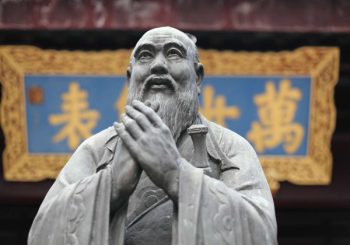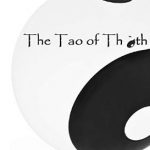Contributing writer for Wake Up World
Your mind state ought to be in a balanced disposition. Do not be too fluid nor too ardent, but balance your pliability and rigidity to navigate the path towards steady perspective and morality. There are times when the most efficient modality might be more Yin and other times where it might more Yang, and no matter this shift we can still hold steady our moral principles.
[pro_ad_display_adzone id=”110028″]
There is the notion among the occulted teachings of the world that we all have adhere to and work with the collective consciousness and our own internal consciousness. There is the theorized universal mind of the collective, and there is our own internal mind of thoughts, senses and feelings. Being aware of the collective consciousness enables the ability to hold steady our own consciousness when situations sway away from the moral perspective.
By performing internal work we learn to control our response to the external and internal. The more reason we uphold, with simple principles as the basis, the more we can deal with outside influences and the more we can be smooth despite turbulence. Consciousness is the awareness of awareness. It is almost as if there is an observer of the observer, a third mind, or third perspective noting out own behavior. Only by observing the observer might we refine our observations.
An important understanding of mind depicted in The Taiji and practiced in Taiji is enhancement of our mentalism, our internal mind. Taiji is about balance and yet there are many levels of refinement where there is balance. The difficulty of moving three appendages at once in Taiji refines body and mind. Maintaining balance is important whether or not one is performing internal work or external work. Balance is required in ascension, or rising above the influences of the collective, in order to maintain our individual consciousness, our love and truth. Enhancement, refinement requires practice, in balance.
The internal alchemical process of building awareness, of internal mind enhancement, is done by maintaining balance while you expand and/or regain control of your mind. There are essentially two main mind processes engaged and swirling internally. The sympathetic mind controls the fight or flight decisions and the parasympathetic mind controls the rest and digest functions of the body. The parasympathetic system is the passive unconscious mind, a Yin orientation. The sympathetic mind controls our response to situations and is the active conscious mind, a Yang orientation.
The parasympathetic neural pathway and the sympathetic neural pathway each have their potential aspects and the more balanced a state of mind and body, the more potential of being and becoming. Balancing the unity of the sympathetic and parasympathetic, the conscious and unconscious, the stern and soft, leads to ascended thinking and being and expanded potential.
Perhaps the most important concept of mind to be conscious of in order to raise consciousness is the idea that we are made up of compulsive or conscious activity. The more basic we are, the more we are subject to the collective consciousness and the more compulsive institutional influences will steer us to lean in line with, rather than being upright in our own. The more conscious we are the more subtle we become, the more subtleties we appreciate, and the more expansive our considerations and observations are. In refined balance we refine subtle expansiveness.
Seeking to enhance consciousness is effectively endless. It is like one of the famous paradoxes of Zeno, only a metaphysical measure rather than physical measure. Zeno’s Dichotomy Paradox (meaning The Paradox of Cutting in Two) states that if you walk half the distance to a place, and then half the distance to the place again, and continue to approach the place at that rate you will never arrive.
Many scholars compare Mohist philosophical work to Greek philosophical comprehension and stoic developmental perspectives. One of the mutual presentations is less comparable than it is near exact. Chinese Mohist philosophers of the 4th century scribed the exact same idea only in a differing simile. The Mohist idea states “a one-foot stick, every day take away half of it, in a myriad of ages it will not be exhausted.”
The core and distinct aspect of Mohist philosophy is the active promotion of impartial care. It was theorized that instead of only caring for certain people in certain ways impartial care and love for all is better. Impartial attitude is inclusive. Partiality leads to incomplete perspective, but also is divisive for instead of principles there is the potential to be unfair and likely unclear. The Mo idea of impartial care is a quality mind state. The pursuit of impartiality, non-partisan non-partial, mindedness alone, all by itself enhances wisdom and expands consciousness. Worldlings are stuck in the muck of partisanship, impartiality is the path to wisdom.
Consider the paradox of physical reduction as reflective of the paradox of metaphysical expansion, of the development of your Taiji, and to the development of yourself internally. Your internal developmental process is infinite akin to The Dichotomy Paradox, only energetic, spiritual, mental, emotional, only having to do with mind, only pertaining to limitless growth. There will always be room for learning of the world, for betterment of self and development of inner consciousness, more potential love in equanimity.
There is practically infinite room to rise up above the collective consciousness influences, infinite superfluous and partisan aspects to cut from impeding our truth in order to be more in tune with the nature of the world and our own true nature. The more we expand our impartial perception the more wisdom we may align with.
The pursuit of impartiality is the simplest path to wisdom.
Alternatively, partisanship leads to dire complexity.
For more, see The Tao of Thoth. The Tao of Thoth is based on the Taiji of The Seven Tenets of Thoth as illustrated in The Kybalion written by The Three Initiates. The Tao of Thoth is inspired by the relationships of The Tao and The Tenets of Thoth. The Tao provides parallel lessons with The Tenets of Thoth, and each aim towards enhancement and embodiment of lessons pertaining to self-development.
Recommended articles by Ethan Indigo Smith:
- The Sacred Geometry of Tarot
- The Four Dimensions of the Tree of Life – Part 1
- The Four Dimensions of the Tree of Life – Part 2
- The Duality of Polarity: Beyond Nationalism and Globalism
- The Energy of the Divine Masculine
- Tai Chi – The “Grand Ultimate” Form of Self Development
- Understanding Ascension: The Geometry of Energy
- The Mandala: The Sacred Geometry of Meditation
- The Common Origins of Religions and Theology
- Meditation 108: A Guide to Meditating for the Infant Practitioner
About the author:
Activist, author and Tai Chi teacher Ethan Indigo Smith was born on a farm in Maine and lived in Manhattan for a number of years before migrating west to Mendocino, California. Ethan’s work is both deeply connected and extremely insightful, blending philosophy, politics, activism, spirituality, meditation and a unique sense of humor.
You can connect with Ethan on Facebook, check out his author page on Amazon, or visit his new websites, Geometry Of Energy and Meditation 108, where Ethan offers lessons on individuation, meditation, the conceptualization of energy, and the metaphysical significance of 108.
Ethan’s books include:
- The Geometry of Energy: How to Meditate: Simple and profound, this book offers an empowering four-step meditation, focused through the sacred dimensions of geometry.
- The Little Green Book of Revolution an inspirational book based on ideas of peaceful revolution, historical activism and caring for the Earth like Native Americans.
- Meditation and Geometry for The Youth: A short and sweet book to introduce young people to meditation and sacred geometry, in a simple format for the youth and youthful alike.
- 108 Steps to Be In The Zone, a set of 108 meditative practices for self discovery and individual betterment, including techniques to develop balance, transmute sexual energy.
[pro_ad_display_adzone id=”110027″]









